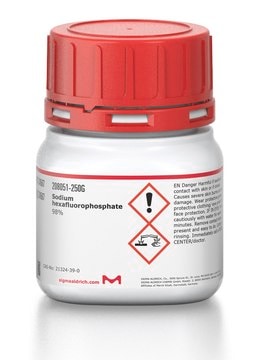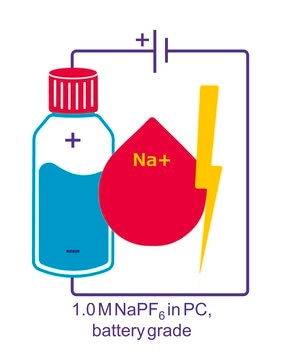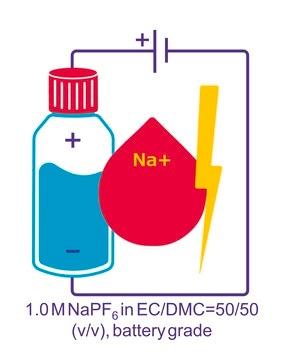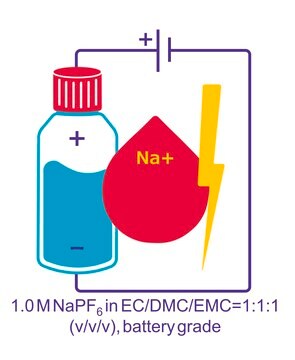936022
Sodium hexafluorophosphate

99.9% trace metals basis, anhydrous, battery grade
Synonym(s):
NaPF6, Sodium hexafluorophosphate(v)
About This Item
Recommended Products
grade
battery grade
Quality Level
Assay
99.9% trace metals basis
form
white powder
greener alternative product characteristics
Design for Energy Efficiency
Learn more about the Principles of Green Chemistry.
sustainability
Greener Alternative Product
impurities
≤100 ppm Cl
≤100 ppm Sulfate
≤1500 ppm trace metals
mp
>200 °C (lit.)
density
2.369 g/mL at 25 °C (lit.)
2.369 g/mL
application(s)
battery manufacturing
greener alternative category
SMILES string
[Na+].F[P-](F)(F)(F)(F)F
InChI
1S/F6P.Na/c1-7(2,3,4,5)6;/q-1;+1
InChI key
KMADQUOCJBLXRP-UHFFFAOYSA-N
Looking for similar products? Visit Product Comparison Guide
Related Categories
General description
Application
related product
Signal Word
Danger
Hazard Statements
Precautionary Statements
Hazard Classifications
Acute Tox. 4 Dermal - Acute Tox. 4 Inhalation - Acute Tox. 4 Oral - Eye Dam. 1 - Skin Corr. 1B
Storage Class Code
8A - Combustible corrosive hazardous materials
WGK
WGK 3
Flash Point(F)
Not applicable
Flash Point(C)
Not applicable
Certificates of Analysis (COA)
Search for Certificates of Analysis (COA) by entering the products Lot/Batch Number. Lot and Batch Numbers can be found on a product’s label following the words ‘Lot’ or ‘Batch’.
Already Own This Product?
Find documentation for the products that you have recently purchased in the Document Library.
Our team of scientists has experience in all areas of research including Life Science, Material Science, Chemical Synthesis, Chromatography, Analytical and many others.
Contact Technical Service










